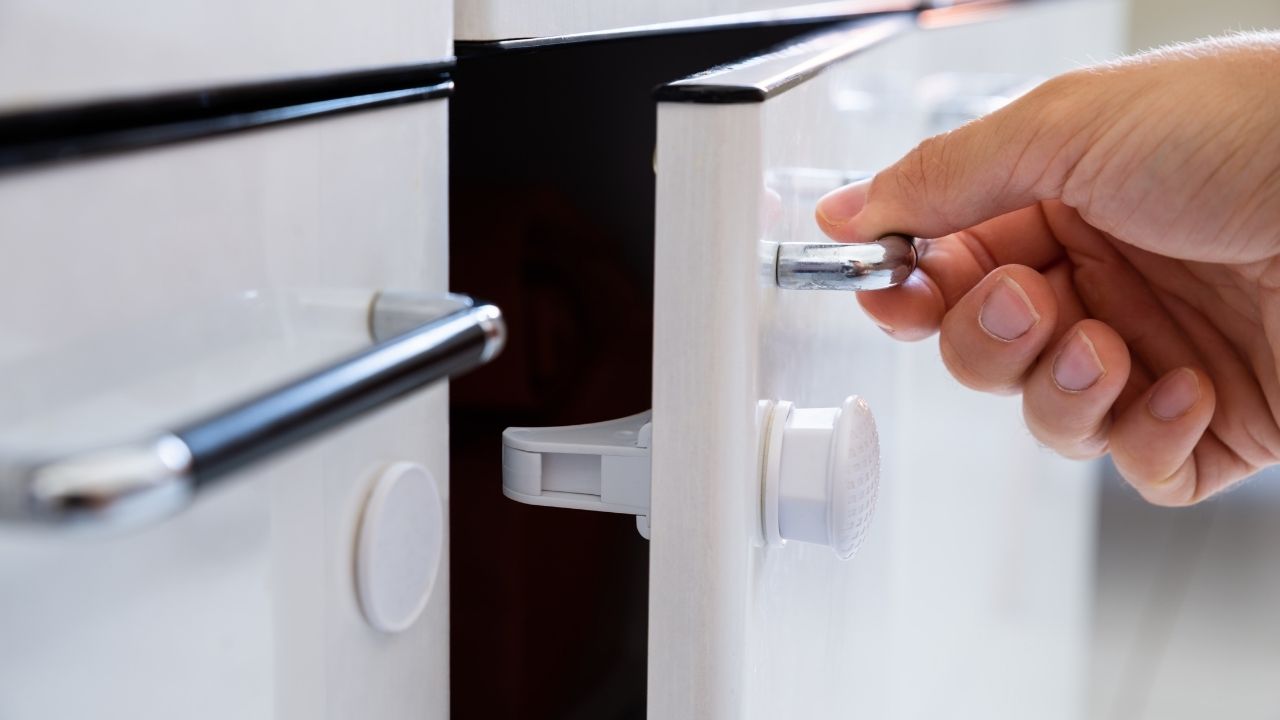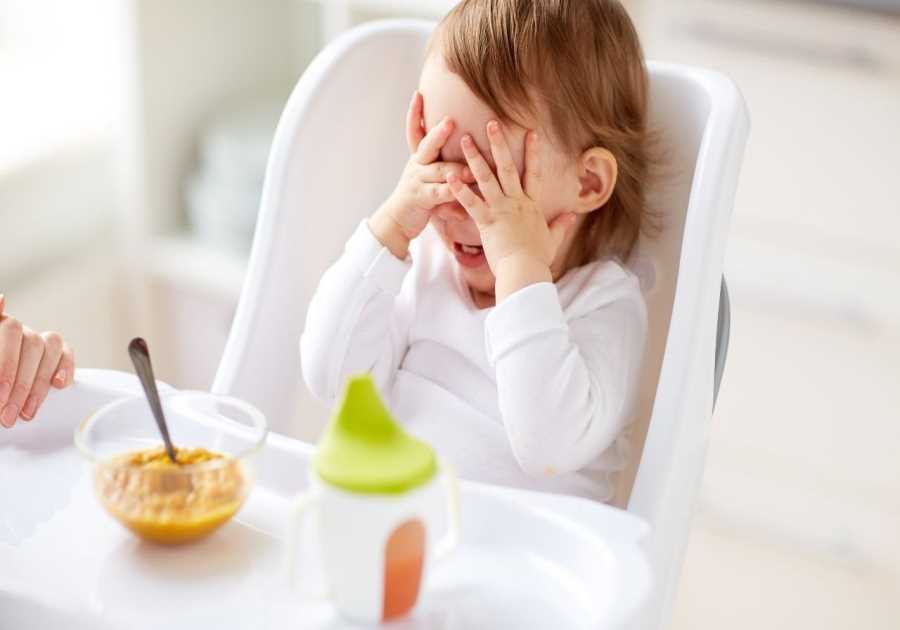As a loving parent, you want nothing but the best for your baby. However, when your little one catches a cold, it can be tough to see them struggle with sniffles and coughs. While colds are common in babies, they can still cause discomfort and disrupt their sleep. It's important to know how to soothe your baby's symptoms and provide effective care during this time.
Fortunately, there are several ways you can help ease your baby's symptoms and make them feel more comfortable. From keeping them hydrated to using safe over-the-counter medications, there are many solutions that can alleviate coughs and sniffles. Whether you're a new parent or have been through this before, learning how to care for your baby during a cold is crucial for both their health and happiness. In this article, we'll explore effective ways to soothe sniffles and calm coughs so that you can provide the best possible care for your little one.
Understand the Symptoms of a Baby's Cold
Let's get to know the signs of a cold in infants so you can identify them early on. Prevention techniques are always better than cure, and recognizing the symptoms is the first step towards that. The common causes of a baby's cold include exposure to viruses, bacteria, or allergens. When your baby has a cold, they may experience symptoms such as coughing, sneezing, runny nose, fever, irritability, loss of appetite, and trouble sleeping. However, it is important to note that some babies may not exhibit all these symptoms.
To prevent further complications from your baby's cold, it is essential to keep them hydrated. This means ensuring they are getting enough fluids by offering breast milk or formula if they are still on it. You can also give small sips of water if your baby is older than six months old and has started solid foods. Dehydration can make their illness worse and prolong their recovery time. Additionally, keeping the air moist with a humidifier or vaporizer will help soothe their dry throat and nasal passages while they sleep.

Keep Your Baby Hydrated
Make sure your little one stays hydrated to help ease the discomfort of a nasty nasal infection. This is especially important for babies who are exclusively breastfed because breast milk contains all the essential nutrients and antibodies needed to fight off infections. Offer your baby extra feedings, even if they seem uninterested, as this will increase their fluid intake and also provide comfort during feeding.
If your baby is formula-fed, you can offer them small amounts of water between feedings. However, make sure to consult with your pediatrician before doing so. Additionally, you can try offering electrolyte solutions specifically designed for babies to replace lost fluids and restore electrolyte balance in their body. These solutions are often available at pharmacies and drugstores.
Ensuring that your little one stays hydrated is a crucial step in helping them feel better when battling a cold or flu. Up next, we'll discuss how using a humidifier can further soothe your baby's symptoms.
Use a Humidifier
Using a humidifier can be a game-changer when your little one is struggling with a stuffy nose. The benefits of using a humidifier include loosening the mucus in the nasal passages and throat, reducing coughing, and providing relief from dry skin. Choosing the right humidifier for your baby's room is essential to ensure optimal results.

Here are three factors to consider when selecting the best humidifier for your baby:
- Size: Choose a size that fits your baby's room.
- Type: There are different types of humidifiers - cool mist, warm mist, ultrasonic, evaporative - each with its advantages and disadvantages. Consider which type would work best for you and your baby.
- Maintenance: Ensure that it's easy to clean or has removable parts that you can put in the dishwasher or washing machine.
A well-maintained humidifier can last up to several years and provide long-lasting relief for your little one's cold symptoms. Once you have chosen the right one, use distilled water instead of tap water to prevent mineral buildup on the machine components. With proper care and maintenance, your baby will breathe easier with every use! Now let's move on to another effective way to soothe those sniffles - trying saline drops and nasal aspirators.
Try Saline Drops and Nasal Aspirators
When your little one is struggling with a stuffy nose, you may want to consider trying nasal irrigation using saline drops. Nasal irrigation helps to flush out mucus and allergens from your baby's nose, relieving congestion and making it easier for them to breathe. Saline drops are available at most drugstores or can be made at home by mixing salt and warm water in the right proportion.
To use saline drops, first lay your baby on their back with their head tilted slightly backward. Next, place two to three drops of saline solution into each nostril using a dropper or syringe. Wait a few seconds before gently suctioning out any excess mucus using a nasal aspirator. Repeat this process as needed throughout the day. Be sure to clean the aspirator thoroughly after each use to prevent bacteria growth.

Transition: While saline drops and nasal aspirators can provide some relief for your baby's cold symptoms, sometimes over-the-counter medications may also be necessary.
Use Safe Over-the-Counter Medications
Sometimes you gotta give your little one some medicine to help with their cold, but it's important to choose safe over-the-counter options. When choosing a medication, make sure to read the label carefully and follow the recommended dosage for your baby's age and weight. Keep in mind that even safe medications can have side effects, so always monitor your baby closely after giving them medicine.
Here are some safe over-the-counter medications you can use to ease your baby's cold symptoms:
- Pain relievers like acetaminophen or ibuprofen can help reduce fever and discomfort, but make sure to consult with your doctor before giving any medication to babies under 6 months of age.
- Cough suppressants containing dextromethorphan can help calm persistent coughs, but check with your doctor first since they may not be effective in children under 6 years old.
- Nasal decongestant drops or sprays containing oxymetazoline or phenylephrine can provide relief from nasal congestion, but only use for a maximum of three days since prolonged use can cause rebound congestion.
While over-the-counter medications can be helpful, there are also alternative remedies that may prove just as effective without any potential side effects. In the next section we'll cover when it may be necessary to seek medical attention for your baby's cold.

When to Seek Medical Attention
If your little one is still feeling under the weather despite your efforts to alleviate their symptoms, it may be time to consult with a medical professional. While most colds will resolve on their own within 7-10 days, there are certain warning signs that indicate you should seek medical attention for your baby. These warning signs include difficulty breathing or rapid breathing, persistent fever over 100.4 F (38 C), blue lips or nails, lethargy or extreme fussiness, and dehydration.
Your doctor's advice is crucial when it comes to caring for your baby's cold. They can recommend safe and effective treatments based on the severity of the symptoms and your child's age and health history. In some cases, they may prescribe medication to help relieve congestion or reduce fever. It's important to follow their instructions carefully and not give any additional medications without consulting with them first as some over-the-counter medicines can have negative side effects in babies. Remember that seeking medical attention early can help prevent complications and ensure your little one gets back to feeling like themselves again soon.
Frequently Asked Questions
Can a cold in a baby lead to more serious illnesses?
Did you know that babies under 6 months old are at a higher risk for developing more serious illnesses from a cold? According to the American Academy of Pediatrics, infants in this age range are more likely to experience complications such as pneumonia or bronchiolitis. It's important to monitor your baby's symptoms closely and seek medical attention if they have difficulty breathing, a fever over 100.4°F, or signs of dehydration. While it's impossible to completely prevent colds and other illnesses, there are steps you can take to boost your baby's immune system such as breastfeeding, practicing good hygiene, and avoiding exposure to sick individuals. Remember to always prioritize your baby's health and seek professional advice when necessary.
How can I prevent my baby from catching a cold in the first place?
To prevent your baby from catching a cold in the first place, it's important to establish healthy habits early on. Make sure to wash your hands frequently and avoid close contact with others who are sick. Additionally, keep your home environment clean and free of germs by regularly disinfecting surfaces and toys. It's also crucial to stay up-to-date on vaccination reminders for both you and your baby, as vaccines can provide protection against certain viruses that cause colds. By taking these preventative measures, you can help reduce the likelihood of your baby catching a cold and ensure their overall health and well-being.

Can I use essential oils to help soothe my baby's cold symptoms?
When your baby has a cold, it can be tempting to try alternative remedies like essential oils to help soothe their symptoms. However, it's important to remember that not all essential oils are safe for babies. Some oils can cause skin irritation or even respiratory distress if used improperly. It's crucial to research the safety of essential oils before using them on your little one. Additionally, it's important to note that while some parents may find success with essential oils, they should not replace medical care for serious illnesses. As always, consult with a healthcare professional before trying any new remedies or treatments for your baby's cold.
Are there any home remedies that can help relieve a baby's cough?
When your little one is coughing, it can feel like they're being wracked with waves of discomfort. But fear not: there are a variety of home remedies that can help soothe their symptoms and provide much-needed relief. Herbal remedies, such as thyme or eucalyptus tea, can work wonders in calming a baby's cough when sipped slowly throughout the day. Steam therapy is another great option - simply sit with your baby in a steamy bathroom for 10-15 minutes to help loosen mucus and ease congestion. For more immediate relief, try honey treatment or saline drops to combat dryness and irritation in the throat and nose. With these gentle yet effective methods on hand, you'll be able to bring comfort to your little one whenever they need it most.
How long does a typical baby cold last?
Baby colds can last anywhere from a few days to two weeks, with most lasting around a week. The duration of the cold depends on various factors such as the baby's age and immune system strength. During this time, it is common for your baby to experience symptoms such as runny nose, coughing, sneezing, and fever. It is essential to keep them hydrated and comfortable by using saline drops for their stuffy nose and offering plenty of fluids. While there is no cure for the common cold, you can help relieve some of the symptoms by keeping your baby's environment clean and avoiding exposure to sick people. Remember that babies are more susceptible to experiencing complications from a cold, so if you notice any concerning symptoms or they do not seem to be improving after several days, it is crucial to seek medical attention promptly.
Conclusion
In conclusion, dealing with your baby's cold can be tough, but with the right care and attention, you can soothe their sniffles and calm their coughs. Remember to keep a watchful eye on your little one's symptoms and take action as needed.

It is important to note that seeking medical attention may become necessary in certain situations. Don't hesitate to reach out to your healthcare provider if you have concerns or if your baby's symptoms worsen. With patience and tender loving care, you can help your baby feel more comfortable during this challenging time.
.png)





